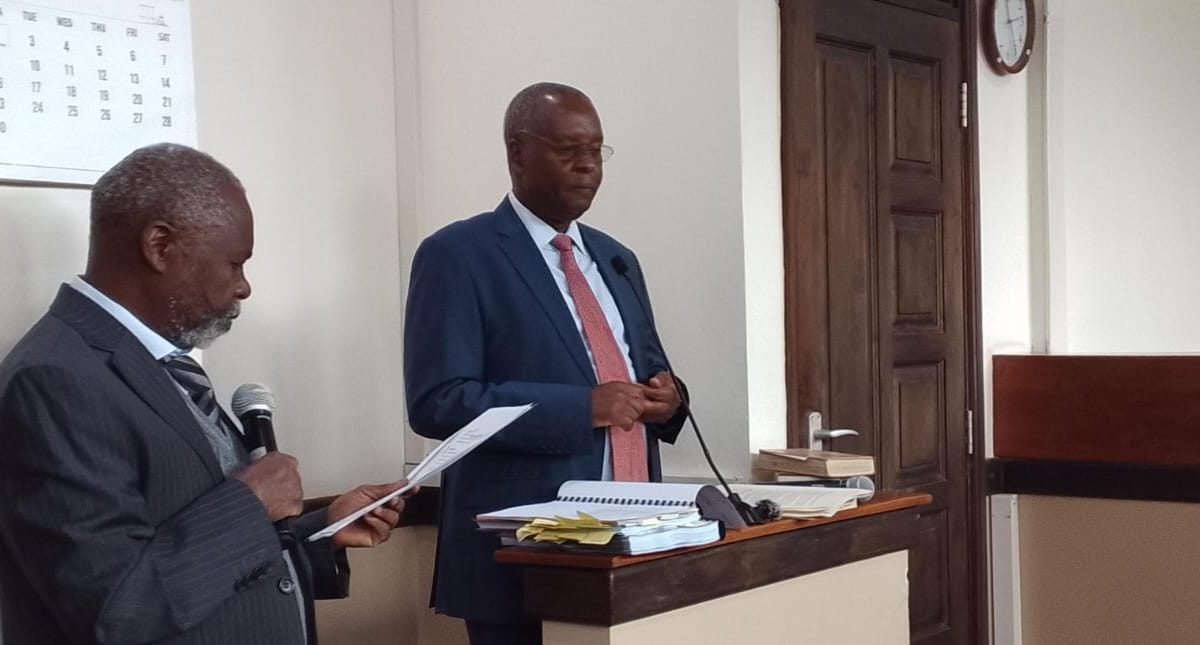Under the Traffic (Motor Vehicle Inspection) Rules, 2025, all vehicles over four years old, as well as commercial, school, and public service vehicles will require annual inspections. Additional checks will be mandatory post-accident, before registration, or when vehicle details change. The rules aim to eliminate unsafe vehicles from Kenyan roads by regulating salvage vehicles and introducing inspection stickers as proof of compliance
By TWV Team
Kenyans are set to witness a transformative overhaul of the nation’s transport sector, with the reintroduction of the controversial alcoblow and a raft of new regulations aimed at enhancing road safety, professionalising transport services, and safeguarding schoolchildren. The Ministry of Roads and Transport published the draft rules in a special issue of The Kenya Gazette last week, marking a significant step towards reducing road accidents and improving accountability across the sector.
The proposed reforms, now open for public consultation, span four key areas: vehicle inspections, school transport, drink-driving enforcement, and commercial vehicle operations. Roads and Transport Cabinet Secretary Davis Chirchir described the measures as a bold move towards a safer and more professional transport ecosystem. “We are moving toward a transport ecosystem that values professionalism, accountability, and safety,” Chirchir said.
The reintroduction of the Alcoblow, a breathalyser used to curb drink-driving, is a cornerstone of the reforms. Previously withdrawn after courts ruled its implementation lacked a legal basis, the new Traffic (Drink Driving) Rules, 2025, aim to rectify this. The rules establish legal alcohol limits for drivers, empower law enforcement to conduct tests using approved devices, including breathalysers and biological samples like blood or urine, and outline procedures for sample handling and admissibility in court.
Refusal to comply with testing will carry consequences, with escalating penalties for repeat offenders, including fines, driving licence suspensions, or revocations. The government appears determined to ensure the alcoblow’s return is legally robust, addressing past criticisms and enhancing road safety enforcement.
Under the Traffic (Motor Vehicle Inspection) Rules, 2025, all vehicles over four years old, as well as commercial, school, and public service vehicles will require annual inspections. Additional checks will be mandatory post-accident, before registration, or when vehicle details change. The rules aim to eliminate unsafe vehicles from Kenyan roads by regulating salvage vehicles and introducing inspection stickers as proof of compliance.
Private testing centres will face stringent licensing standards, with stiff penalties for non-compliance. “By introducing structured inspection regimes and regulating private testing centres, we aim to significantly reduce road accidents and vehicle-related emissions,” Chirchir noted.
The Traffic (School Transport) Rules, 2025, prioritise the safety of schoolchildren, with Chirchir emphasising that “the safety of school-going children is non-negotiable.” The rules introduce a licensing regime for school transport providers and mandate safety features such as seatbelts, fire extinguishers, and telematics systems. Drivers and attendants will face qualification requirements, regulated conduct, and operational standards, including designated transport hours and clear boarding procedures.
A key provision bans school buses from being hired or used for private purposes without a temporary licence, and all school vehicles must adhere to strict signage and colour-coding standards to ensure visibility and compliance.
The National Transport and Safety (Operation of Commercial Vehicles) Regulations, 2025, target professionalism in the commercial transport sector. Owners and operators will require licences, and vehicles must be equipped with safety features like speed governors and under-ride protection devices. Strict limits on driver working hours aim to reduce fatigue-related accidents, while the National Transport and Safety Authority (NTSA) will gain powers to conduct safety audits, tow stalled vehicles, and enforce compliance through fines or licence suspensions.
The public has 14 days from the publication date to submit written feedback on the draft rules, with copies of the proposals and regulatory impact statements available on the Ministry of Roads and Transport and NTSA websites. The consultation process underscores the government’s commitment to inclusive policymaking as it seeks to build a safer, more accountable transport system.
These reforms represent a critical juncture in Kenya’s efforts to curb road fatalities, estimated to claim thousands of lives annually and address longstanding challenges in the transport sector. By tackling drunk driving, enforcing vehicle safety standards, protecting schoolchildren, and professionalising commercial transport, the government aims to create a safer and more reliable road network for all Kenyans.
As the nation awaits public feedback and the finalisation of these regulations, the return of the alcoblow and the broader reforms signal a renewed commitment to transforming Kenya’s roads. For a country where road safety remains a pressing concern, these measures could pave the way for a safer, more disciplined transport future.





